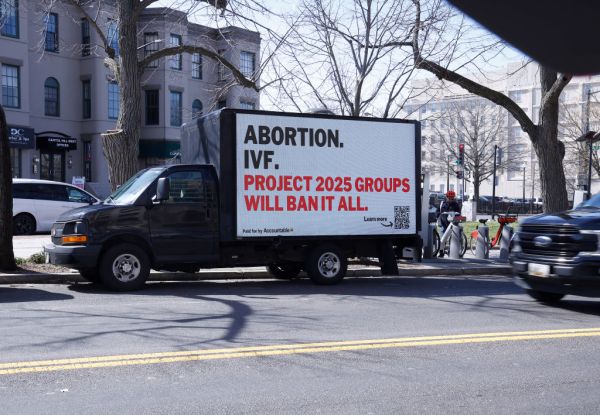Project 2025, a presidential transition project organized by the Heritage Foundation, has been at the forefront of national political discourse in recent weeks as celebrities, politicians, and everyday Americans highlight many of the controversial policy recommendations found in the plan. While some claims about the document’s contents are correct, other widespread assertions have proven false or misleading.
One claim that has spread widely this week concerns the plan’s supposed curtailing of veterans benefits. A graphic listing several supposed recommendations has popped up across Facebook, Instagram, Reddit, Threads, and X. “Project 2025 Veterans Cuts. Y’all better wake up” reads the caption on many versions of the image.
The graphic is based on actual proposals from the Heritage Foundation, but they are not included in Project 2025. The policy proposals are from the Heritage Foundation’s Budget Blueprint for Fiscal Year 2023, a separate project.
What the Budget Blueprint says.
The Heritage Foundation, a conservative think tank that has long influenced Republican administration policy, has released a federal budget blueprint each year since at least 2016. The blueprints offer recommendations for annual congressional budgets and typically cover a comprehensive range of policy issues. While Project 2025’s Mandate for Leadership, the 922-page document that has been the source of both controversy and false claims, was created by a broad coalition of conservative organizations and focuses primarily on the executive branch and administrative state, the Budget Blueprint is produced entirely by the Heritage Foundation and targets congressional policymaking.
The posts about Project 2025’s veterans policies include four of the 229 policy recommendations made in the Budget Blueprint for Fiscal Year 2023. Even though these policies do not appear in the Mandate for Leadership, the graphic lists them beneath a headline reading “PROJECT 2025 VETERANS CUTS.”
The first recommendation would eliminate the simultaneous receipt of both retirement pay and disability compensation. Since 2003, some veterans have been eligible to receive both disability and retirement pay concurrently. This recommendation would return concurrent pay rules to their pre-2003 state.
The second recommendation would remove VA enrollment for veterans who have no compensable service-connected disabilities and annual incomes above a certain national threshold. Because the VA can only add as many new enrollees each year as its funding allows, veterans are sorted into eight different enrollment priority groups depending on factors including their service history, disability rating, income level, and qualification for Medicaid. The Budget Blueprint recommends ending new enrollments for veterans in the lowest two priority groups and disenrolling those who are already in the VA system.
A third policy change would exclude seven conditions from disability compensation that the U.S. General Accounting Office determined are not likely to be caused or made worse by military service, such as multiple sclerosis and Crohn’s disease.
Fourth, the blueprint recommends implementing a 10-year time limit on initial disability compensation applications. There is currently no limit on how long after retiring from military service a veteran can apply for disability benefits, which, according to Heritage, may lead to the VA covering disabilities that occurred after military service was completed.
While these budget-cutting proposals were made by the Heritage Foundation, they are not included in Project 2025’s Mandate for Leadership. Project 2025 is organized by the Heritage Foundation and leverages many of its policy experts, but the project is distinct from the think tank’s Budget Blueprint.
What does Project 2025 say about veterans?
The plan’s chapter on the Department of Veterans Affairs (VA) was written by Brooks Tucker, a former Marine lieutenant colonel who served in the VA during Trump’s presidency. First appointed as the acting chief of staff for the department in April 2020, Brooks also served as the assistant secretary for the VA’s Office of Congressional and Legislative Affairs and as a policy adviser in Trump’s presidential transition team.
In his chapter, Brooks lays out several policy proposals that he claims would advance a “veteran-centric” philosophy in the VA. These include rescinding departmental policy directives that are “contrary to conservative governance starting with abortion services and gender reassignment surgery,” preparing for demographic shifts in the veteran population, strengthening the VA’s Community Care program, and ensuring that standards established by the 2018 VA MISSION Act are achieved.
The chapter also advocates for reforms to the Veterans Benefits Administration (VBA). These include automating the claims adjudication process to provide benefits more quickly and using new tools and training to prevent fraud. As part of these reforms, Brooks argues that the next administration should explore ways to accelerate the review and removal of disability ratings that are unrelated to military service. This review process already exists within the VA, but its acceleration could eliminate benefits for conditions that the VA determines are not linked to military service sooner than would happen otherwise.
The plan also seeks to increase political control over the VA. Brooks argues that career civil servants in presidentially appointed positions should be transferred from those posts and replaced with appointees that align more closely with the incoming administration’s policy objectives.
If you have a claim you would like to see us fact check, please send us an email at factcheck@thedispatch.com. If you would like to suggest a correction to this piece or any other Dispatch article, please email corrections@thedispatch.com.










Please note that we at The Dispatch hold ourselves, our work, and our commenters to a higher standard than other places on the internet. We welcome comments that foster genuine debate or discussion—including comments critical of us or our work—but responses that include ad hominem attacks on fellow Dispatch members or are intended to stoke fear and anger may be moderated.
With your membership, you only have the ability to comment on The Morning Dispatch articles. Consider upgrading to join the conversation everywhere.